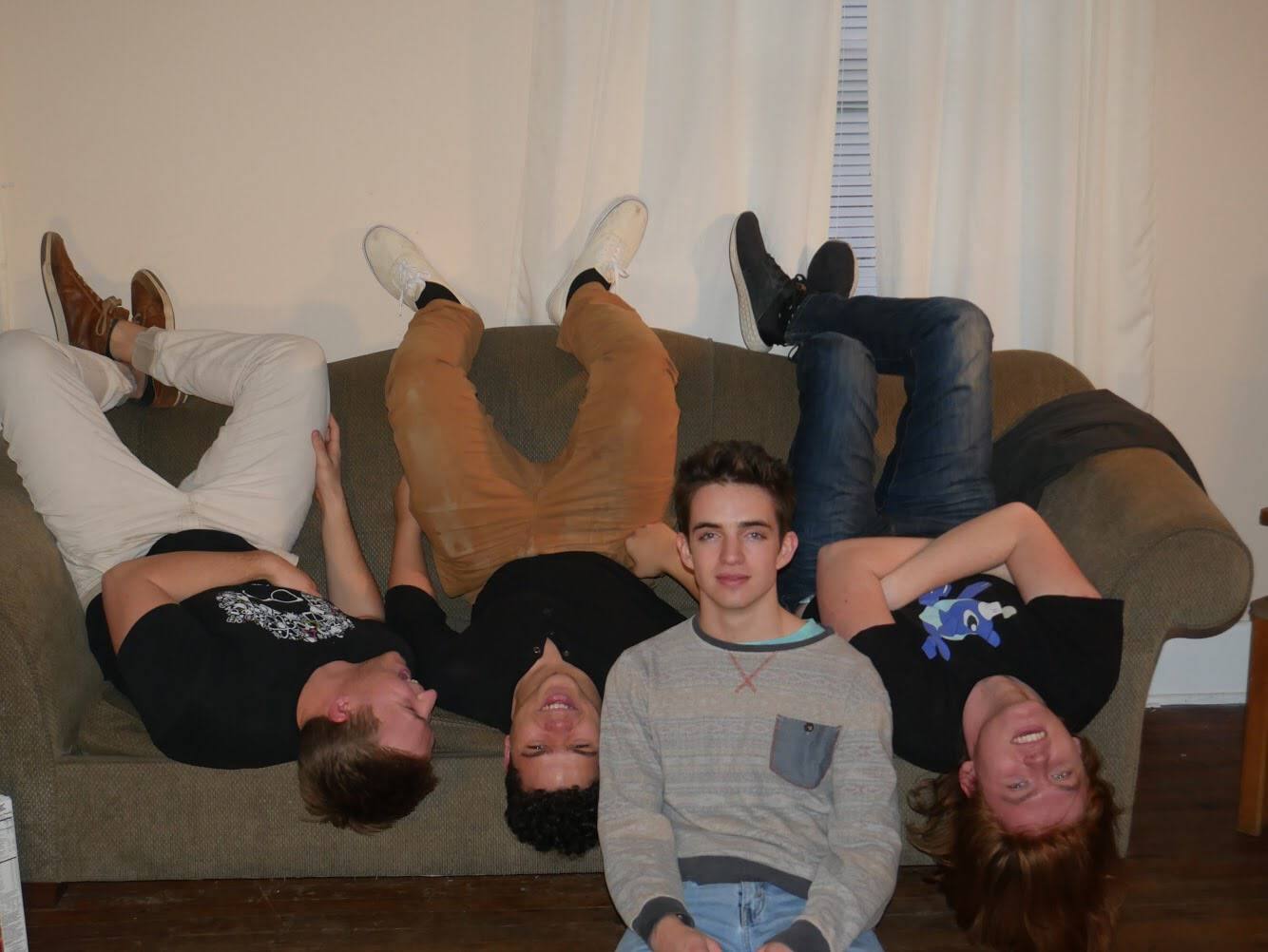When I arrived at Jake Julian’s house to conduct an interview with his band Flat Moon Theory, none of us knew it would be the last interview they ever did. A group that had performed in the Champaign-Urbana scene for years was breathing its dying breath right into my ears. I was typing their metaphorical will to the world, but it didn’t feel that solemn at that moment.
When I arrived, Jake Julian and Jake Rottier (the band’s guitarists) were awaiting the arrival of the rest of their bandmates. As we sat on the porch, we discussed new releases and what artists they had been listening to lately. As more members of the band trickled in and joined the discussion, I was struck by how diverse their music tastes were. Each of them seemed to have their own set of influences and musical interests, and it was interesting to see how that reflected onto their sound and styles. As I observed all these vast differences in their tastes, it became apparent that this group may not have been five lines running parallel. Instead, they were moving in lines that happened to intersect here and there but had their own trajectories.
To say Flat Moon Theory was eclectic would be a gross understatement. Besides the Jakes, the band consisted of drummer Sawyer Pearson, bassist Adam Clemmit, and DJ Daniel White. The members started making music together at various times. When asked how their styles complimented each other, Jake Julian said: “It’s more of a clash, the clash of our styles created what Flat Moon Theory sounds like.” He was joined by drummer Adam Clemmit who said, in a quote that seems much more cryptic in retrospect, “We always fight about what is about our sound that makes (it) unique.” This is evident in their music, making it fun, unpredictable, and diverse. Of course, with that comes its own set of baggage that can sometimes pull a group apart.
This difference could also be observed in how they viewed their sound. According to Jake Julian, Flat Moon Theory was “a fusion of funk, hip-hop, rock, and Jazz.” Other answers ranged from neo-soul to “A combination of Ty Dolla $ign and Jason Mraz,” as stated by Sawyer Pearson. While the final statement was clearly meant as a joke, it highlighted the contrast between how seriously some members of the band took the project compared to others. It was as though every member of Flat Moon Theory had a completely different vision of what they were. These internal conflicts and contradictions seemed to define Flat Moon Theory from beginning to end, from the creative process to the stage. During the interview, there certainly wasn’t, and perhaps there never was, a holistic view of what Flat Moon Theory was or intended to be.
Of course, that sort of vision isn’t always necessary to make good music, and this was clearly the case with Flat Moon Theory. Since they rarely released music online, the primary method of consumption for any Flat Moon Theory project was their many live performances. These were energetic, erratic, and extensive, with sets often going on for nearly an hour. Songs would give way to jam sessions that would transition into other songs, all the while each individual member appeared to be having the time of their lives. And why wouldn’t they? To be the center of a unique cultural moment that everyone in the room can feel is a truly enriching experience, however unsustainable it may be.
At one point, I asked everyone in Flat Moon Theory what their least favorite aspect of being a musician was. Their answer to this question gave perhaps the best glimpse into their downfall. Jake Julian replied: “(It’s) very difficult to make good music, it takes so much time. We’re making decent stuff right now, but it takes a lot to get the music from our heads to the track. School and music and life, in general, clash.” Pearson remarked, “Many bigger artists gave up the rest of their lives to make music, I don’t want to give up everything else to make music.” Clearly, there was a feeling of disconnect here, with an acknowledgment that their goals and visions may no longer be in the same place, and perhaps they never were.
Above all else, Flat Moon Theory was fun. They created exciting music and performed stunning sets. To paraphrase Lao Tzu, “The band that plays twice as well lasts half as long.” What began humbly from a few individuals who met in Allen Hall ended only a few blocks away with a breathtaking performance in front of a packed and enthusiastic crowd. After the show, when asked if he had any last words as Flat Moon Theory, frontman Jake Julian simply said: “Keep listening.”
Cover photo from the Flat Moon Theory Facebook page.








